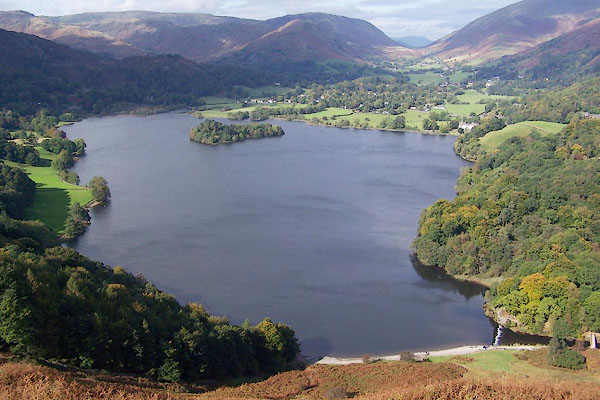




 topographs, Cumbria
topographs, Cumbria outline views today, Cumbria
outline views today, Cumbria
BPS41.jpg
 goto source
goto sourcePage viii:- "VII. The painter's researches for views, which by a sort of irregular symmetry may affect the imagination strongly, or may please the eye by richness of tints or variety of shades, are generally gratified where the ruder boldness of mountains is contrasted with the rich foliage of trees, or with sheets or streams of water: or where clouds and vapours intersperse varieties of aerial scenery, that change as it were by magic, impressing on the objects within their effect a hue and cast of appearance that scarce seems earthly. He chuses his stations where these may not only meet at once, but in such an arrangement as may strike the mind powerfully, and leave their impression and image upon the memory. Where painting goes, there generally goes poetry; their walks are the same; their beloved scenes are similar, and have always been so from the Grecian temple, to the green glens of Britain."
 goto source
goto sourcepage xxxv:- "..."
"VII. As the business of the following Plans is to conduct the stranger to those places which furnish the views and landscapes of different kinds in the neighbourhood of these Lakes, and which the taste of the times has been so pleased with, I shall offer nothing upon that subject here, but an observation which I think the greatest artist will excuse: It is, that those pictures impart the most grateful sensations to the mind, which are expressive, not only of general beauties, or such as may be found common to most places, but of the particular nature and local genius of the country from the objects of which they are drawn. Thus a sunny day, a stream of water, a ruin, or other kind of building, may be with almost every where, and may be sorted in such a manner as to form a pleasant view: But the solemnity of those vapours which hang upon mountains in drizzly and gleamy weather, the shades which they occasion, their silent mixing and rolling together, their magnifying effects, with the tops of the mountains peeping above, as it were in another world, lead away the mind from scenes of cultivation, and present ideas of a new, but not less pleasing kind. It is unnatural, at least it feels so to me, and subversive to the general tenor of the piece, to be studious of introducing copies of the works of man, and numerous living figures, amidst such solitudes. For example, I have seen a drawing of Dun-Dornadilla, in the North-Highlands, which seemed to me excellent of its kind: there was a pensive loneliness about that ruined pile which corresponded well with the dreary nakedness of the vast hills that rose around it. On the contrary, I have seen views of the mountains contiguous to these lakes, at the bases of which were delineated chaises and waggons: such vehicles might indeed possibly be dragged along there, but they were far from being, (if I may be allowed the expression,) native objects, or consonant with the rest of the piece."
"I may here be asked, what I meant in my seventh paragraph, at the beginning of this Introduction, mentioning the affinity between painting and poetry? I may also be told, that many have heard of the scenes to be met with near these lakes; but where are the poets, or the poetry? As I have not leisure to answer such questions at present, I shall leave them to be resolved at another time."
